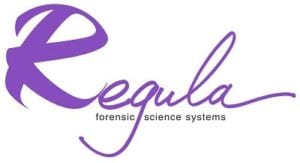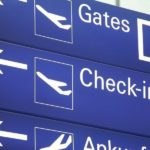This is a guest post composed by Oleg Vaisman, Marketing Manager for Regula Forensics.
When travelling, check-in can be a tedious though obligatory procedure that none of us ever have the option to avoid.

The challenge is that when entering lots of data manually, people tend to make mistakes. This, of course, happens more in mobile forms because of tiny on-screen keyboards and a limited overview of the already filled-in fields. But airlines and countries require that the name on your ticket exactly matches the name on your passport. Otherwise, you’re a no-go.
The appetite for digital and mobile services is growing exponentially. The numbers speak for themselves: 64 percent of travelers currently have a travel app installed on their phone and 69 percent use those apps on a regular basis. And what do we end up with if a minor typo still takes place? Extra charges, missed flights, anxious ground handling staff, stressed-out passengers.
At Regula, we believe this should be left in the past. Users should be able to fill out forms without really thinking about them, yet not compromising the accuracy of the data entered. And, what’s simpler than pointing a mobile phone at an ID card or passport and having all the required fields populated automatically in just an instance?
Regula Document Reader SDK with the deep OCR engine is designed to enable the filling-out of mobile and Web applications with its ID scanning functionality.
For the entirety of its 27 years in the market Regula has been dedicated to the development of high-tech forensic equipment, setting itself apart from its peers. More than 50 national and state borders around the globe are equipped with Regula passport readers. We’ve leverage that experience and now the same technology used by Customs and Border Control officials around the globe is available in the palm of a hand!
It is designed to make personal data entry exactly what today’s travelers need and want: something that is intuitive, fast, secure and error free.
Pegasus Airlines – Turkey’s most established private airline – recently embarked on its own digital transformation at every touch point of interaction with its passengers. A great venture indeed! One of the important parts of the overall transformation was to optimize the check-in process via the mobile channel.
The airline began their search to find a technology partner capable of helping them achieve their business objectives, and they chose Regula. Regula Document Reader SDK was successfully embedded into the Pegasus Airlines mobile application, to offer seamless plug & play integration that was no need to make changes to the existing UX/UI.
Additionally, the SDK provides real-time, fully on-device processing in the offline mode with no server component. It guarantees security of personal data and full GDPR compliance.
For travelers, this meant three very easy steps: open an application, choose the flight, scan an ID – and voilà – registered. The simplified check-in has been well received by Pegasus passengers, who have proven to be enthusiastic adopters of the mobile booking and check in solution and have greatly appreciated an intuitive, streamlined travel experience.
So, we’ve come to the point when the passenger has successfully purchased the ticket and completed the check-in process for their flight, and he or she are now on their way to board the plane. The next challenge is to determine whether the passenger is carrying all the necessary travel documents to reach their transit and final destinations.
With a growing number of passengers travelling with hand luggage only, checking-in online and bypassing the check-in counter, determining how to verify that the passenger is well documented is becoming increasingly important, and is a challenge faced by ground handling groups and airlines in all corners of the world
Agents need to check passenger travel documents before boarding to ensure they are compliant with all entry and transit regulations. Improper checks could result in the passenger being denied entry at their destination and involve heavy fines for the carriers to the tune of thousands of Euros!
But, with entry regulations constantly changing, and with different rules applying to different types of travel documents, how do you keep pace? This is where the IATA Timatic system – the database which contains worldwide border control rules and regulations to help streamline the passenger documenting process – steps in.
IATA (The International Air Transport Association) set out on a project with Regula with the clear objective: to increase the level of accessibility to its Timatic database. Eventually, Timatic Mobile was launched as a mobile application for use by airline, ground handling, and security agents. Timatic Mobile became a new tool designed to make personnel more flexible with the way they perform document checks and how the boarding process is organized.
The mobile app, equipped with Regula Document Reader SDK, allows agents to simply point their mobile device camera at the passenger travel document and securely collect all the relevant document details in an instant, instead of having to input the data manually.
The collected information is combined with the passenger itinerary details, and the is verified against the IATA Timatic database for compliance with the immigration rules. The agents are instantly shown a clear decision: “Okay to board” or if there is a “No” – next steps are shown, such as “scan a visa” or residence permit.
Due to the extensive database which goes far beyond common passports and ID cards, Regula Document Reader SDK automatically detects the document type while scanning, without the need to select manually the issuing country or the ID type. There’s no border officer or an agent in the world who would know how all passports of all countries look like but with Regula software it takes mere seconds to identify and categorise the ID.
It basically makes the whole process automated, every single step of it. To sum it up, Timatic Mobile helps reduce the risk of overlooking any new regulations and restrictions and makes the passenger acceptance process a lot more reliable and efficient, and we’re proud to be part of it enhancing the process.






Follow Us